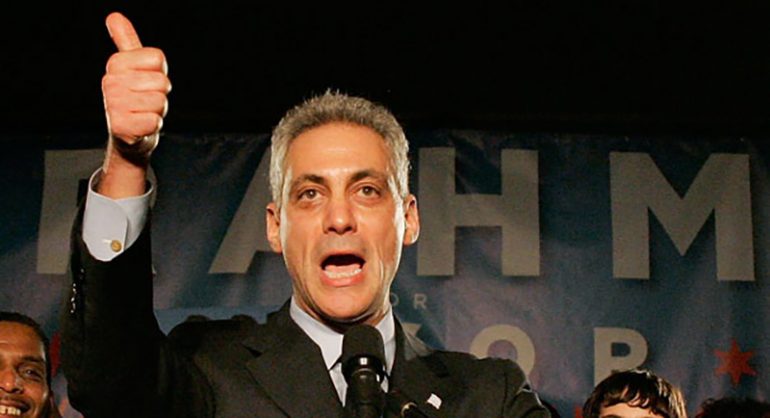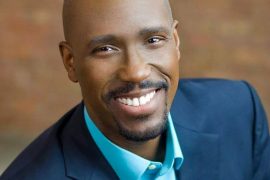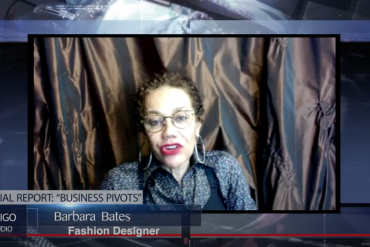In an effort to bring you insights into the halls of power in Chicago, N’DIGO caught up with Mayor Emanuel on the afternoon of April 1, 2015 at his office. He was on the way to a planning meeting for school innovation and that topic was very-much on his mind.
Your opponent has called you the 1 per cent mayor and accused you of not representing the city as a whole. What will you do to unite the city in a second term?
Four years ago, I promised to challenge the status quo. Since then, I’ve made the tough decisions necessary to move Chicago forward, and I’ve kept that promise. In neighborhoods across the city, we are seeing the results, including improved performance at our schools, thousands of new jobs and critical investments in infrastructure and transportation.
In my second term, I will build on the progress we’ve made to create more jobs and fully implement the $13 minimum wage, universal pre-K, and free community college tuition for good students.
In retrospect, would you have closed 50 schools if you had to do it all over again?
When I took office, half of our schools were underutilized and nearly 140 were half-empty. To help ensure that we made the right decision for our children, Chicago Public Schools CEO Barbara Byrd Bennett and I established a commission, which held more than 100 meetings over seven months, hearing from 35,000 residents. That community process helped the Board narrow the list from 300 schools to just under 50. But make no mistake, this would not have been easy whether we looked at 1, 10, 20 or 50 schools.
The status quo was failing our children what we did was more important for them than for my political future.
What do you consider your top 5 achievements as Mayor?
I am most proud of what we’ve done in education and the fight we’ve made on behalf of our children for their future. During my tenure:
1. High school graduation rates have risen;
2. We have implemented a longer school day;
3. All CPS schools now have a full day of kindergarten;
4. Fighting—and continuing to fight—for universal pre-K; and
5. Implementing the Chicago Stars program, which will allow for any CPS student graduating with a B average or higher to attend City Colleges of Chicago for free.
How did the city assume its deep deficit? Who is responsible for the current debt?
The financial problems we inherited four years ago are due to decades of borrowing, pushing debt obligations out into the future, ignoring the growing billions in shortfalls in our city pension funds, and utilizing long-term reserve funds like those gained from the parking meter deal to balance budgets and pay for short-term operating expenses.
When I took office we immediately began the work of turning these practices around and strengthening the city’s finances, all while adding to the rainy day fund and expanding opportunities for youth. Our progress is because we were willing to make the hard choices that had been deferred for decades.
Take garbage collection as an example. Instead of continuing the antiquated ward-based approached, we put garbage collection on a grid. The result is $18 million in annual savings.
We also worked with our partners in labor to achieve landmark pension reform that will address half of the city’s billions in underfunded pension liabilities.
I will continue working with our partners but also making the tough choices that will put our city on stronger financial footing for future generations.

What would you do to encourage and insure economic development in Chicago neighborhoods, particularly for the South and West sides of the city?
My strategy is focused on bringing economic growth to Chicago, from downtown to the neighborhoods. I’m proud of the fact that Chicago has the fastest growing downtown in America: those jobs are being filled by Chicago residents from across the city.
But I have also worked to bring jobs to our neighborhoods, from our success at bringing Method’s first manufacturing facility in the U.S. to the Pullman neighborhood, the eight new grocery stores we have brought to our food deserts, or our $425 million reconstruction of the Red Line South. These initiatives and more are bringing thousands of jobs to our neighborhoods – this is why we have been able to reduce unemployment in Chicago by more than a third since I took office. In a second term, I will double down on these efforts by developing new incentives to spur growth across the city and partnering with big institutions like hospitals and universities to create jobs in our neighborhoods.
What is your vision of Chicago 5 years from now?
My focus is on the things I’ve been discussing. Fully implementing the minimum wage, implementing universal pre-K, working to fully address and resolve the city’s pension issues. I envision taking a world-class city even further by making continued infrastructure investments in our neighborhoods and bringing more jobs to Chicago for our families.
What lessons have you learned from being Mayor of the City of Chicago?
I’ve learned that my greatest strength can also be my greatest weakness. I am passionate about the things I believe in, like ensuring that all children have a full day of kindergarten, a full school day and access to better schools. For that reason, I can occasionally push too hard or talk when I should be listening. I own that and understand that.
Is the City of Chicago facing bankruptcy?
No, bankruptcy is not an option for this great city. Chicago remains strong and we are continuing to work through the pension reform process in Springfield. Bankruptcy could present unintended consequences that would not be good for this city.
Will you raise property taxes?
In four years, we haven’t raised property, gas or sales taxes – a clear sign I am willing to dig deep into the bureaucracy and find reforms that save taxpayer dollars. We’ve made a lot of tough choices, but the end result is that we’ve been able to balance budgets by being more efficient.
What are Chicago’s top 5 most pressing problems?
I tend not to think in terms of “problems.” The city has challenges that my administration addresses head-on. They include:
1. Ensuring that the city’s pension funds are on a sustainable path to protect employee retirement savings and Chicago taxpayers, which we began the last three years as my administration worked collaboratively with organized labor both at the City and Park District to craft a long-term solution that achieves that goal.
2. Getting illegal guns off the streets and out of the hands of criminals;
3. Making sure we continue to improve the quality of our children’s educational options;
4. Continuing to improve city infrastructure; and
5. Continuing to improve the city’s overall financial health.
What do you like most about the city?
The people. As Mayor, I visit communities through the city and get to experience the various cultures of the neighborhoods. Chicagoans are incredible people, with a tough-mindedness and strong value systems. It is my great honor to serve as their mayor.
What impact will the Obama Library have for the City of Chicago?
The Obama Presidential Library is a once-in-a-lifetime opportunity. We need to do what’s necessary so that it comes to Chicago and doesn’t go to New York City. I want Chicago to enjoy the massive job and economic development benefits of the library. The thousands of jobs created by the library will be a boon to the entire City and will help put food on the table for Chicago families. I’ve said that I will move Heaven and Earth to make that happen and that’s exactly what I am doing.






